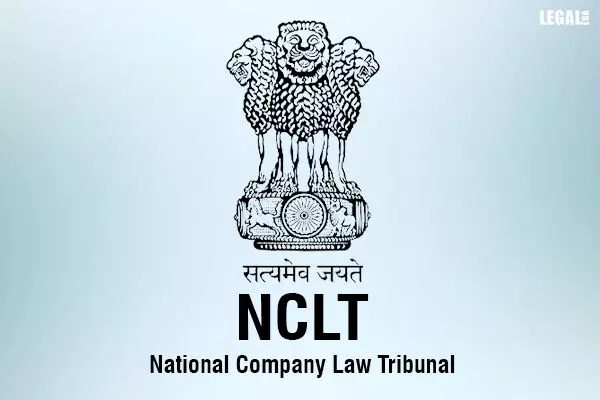- Home
- News
- Articles+
- Aerospace
- Artificial Intelligence
- Agriculture
- Alternate Dispute Resolution
- Arbitration & Mediation
- Banking and Finance
- Bankruptcy
- Book Review
- Bribery & Corruption
- Commercial Litigation
- Competition Law
- Conference Reports
- Consumer Products
- Contract
- Corporate Governance
- Corporate Law
- Covid-19
- Cryptocurrency
- Cybersecurity
- Data Protection
- Defence
- Digital Economy
- E-commerce
- Employment Law
- Energy and Natural Resources
- Entertainment and Sports Law
- Environmental Law
- Environmental, Social, and Governance
- Foreign Direct Investment
- Food and Beverage
- Gaming
- Health Care
- IBC Diaries
- In Focus
- Inclusion & Diversity
- Insurance Law
- Intellectual Property
- International Law
- IP & Tech Era
- Know the Law
- Labour Laws
- Law & Policy and Regulation
- Litigation
- Litigation Funding
- Manufacturing
- Mergers & Acquisitions
- NFTs
- Privacy
- Private Equity
- Project Finance
- Real Estate
- Risk and Compliance
- Student Corner
- Take On Board
- Tax
- Technology Media and Telecom
- Tributes
- Viewpoint
- Zoom In
- Law Firms
- In-House
- Rankings
- E-Magazine
- Legal Era TV
- Events
- Middle East
- Africa
- News
- Articles
- Aerospace
- Artificial Intelligence
- Agriculture
- Alternate Dispute Resolution
- Arbitration & Mediation
- Banking and Finance
- Bankruptcy
- Book Review
- Bribery & Corruption
- Commercial Litigation
- Competition Law
- Conference Reports
- Consumer Products
- Contract
- Corporate Governance
- Corporate Law
- Covid-19
- Cryptocurrency
- Cybersecurity
- Data Protection
- Defence
- Digital Economy
- E-commerce
- Employment Law
- Energy and Natural Resources
- Entertainment and Sports Law
- Environmental Law
- Environmental, Social, and Governance
- Foreign Direct Investment
- Food and Beverage
- Gaming
- Health Care
- IBC Diaries
- In Focus
- Inclusion & Diversity
- Insurance Law
- Intellectual Property
- International Law
- IP & Tech Era
- Know the Law
- Labour Laws
- Law & Policy and Regulation
- Litigation
- Litigation Funding
- Manufacturing
- Mergers & Acquisitions
- NFTs
- Privacy
- Private Equity
- Project Finance
- Real Estate
- Risk and Compliance
- Student Corner
- Take On Board
- Tax
- Technology Media and Telecom
- Tributes
- Viewpoint
- Zoom In
- Law Firms
- In-House
- Rankings
- E-Magazine
- Legal Era TV
- Events
- Middle East
- Africa
NCLT Hyderabad Rules That NCLT Has Jurisdiction Over Eviction of Corporate Debtor Premises During Liquidation

NCLT Hyderabad Rules That NCLT Has Jurisdiction Over Eviction of Corporate Debtor Premises During Liquidation
The Hyderabad Bench of the National Company Law Tribunal (NCLT), comprising Judicial Member Rajeev Bhardwaj and Technical Member Sanjay Puri, has ruled that the NCLT is the appropriate forum to decide on matters concerning the eviction of premises owned by the Corporate Debtor during the liquidation process.
In 2013, Mohd Jamal Athemadnia (tenant) and Sagar Infra Rail International Limited (corporate debtor) signed a lease agreement for a property owned by the corporate debtor. The tenant operated its business from the property. The lease agreement expired in January 2020.
Following admission into the Corporate Insolvency Resolution Process (CIRP) by the NCLT, the Corporate Debtor was ordered into liquidation, and the Property became part of the liquidation estate.
The liquidator issued a sale notice for the property in 2021, and the tenant bid on it. However, the property was sold to another person on September 17, 2022, as stated in the sale certificate.
The liquidator subsequently filed an application under Section 60(5) of the IBC with the NCLT, seeking an order directing the tenant to pay rent arrears and vacate the property.
The Bench cited the National Company Law Appellate Tribunal (NCLAT) judgment in Adinath Jewellery Exports v Mr Brijendra Kumar Mishra and Ors., CA(AT)(Ins) No. 748 of 2023, which established that the NCLT is the proper forum for resolving matters arising during the liquidation process of a Corporate Debtor.
The case concerned an individual claiming to be a tenant under the Maharashtra Rent Control Act, despite having neither a signed agreement with the Corporate Debtor nor a valid Leave and License agreement. The NCLAT held that the NCLT has the proper jurisdiction to consider applications for the eviction of Corporate Debtor premises.
Citing the NCLAT judgment, the NCLT Hyderabad Bench directed Tenant Mohd Jamal Athemadnia to pay rent arrears and vacate the Property.



